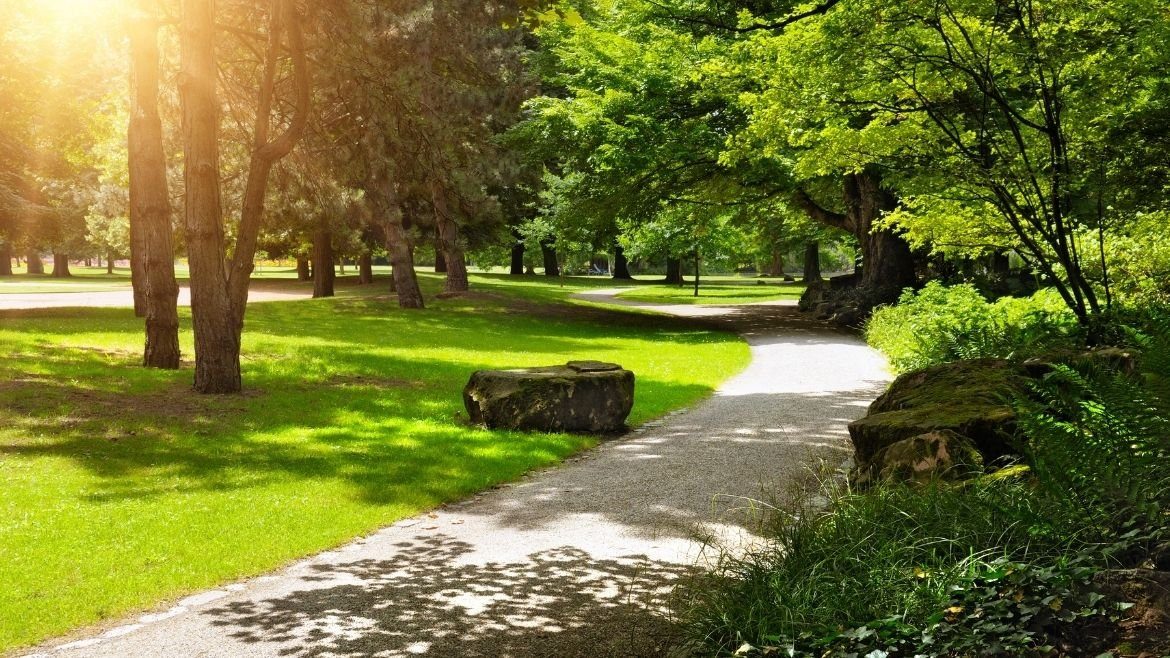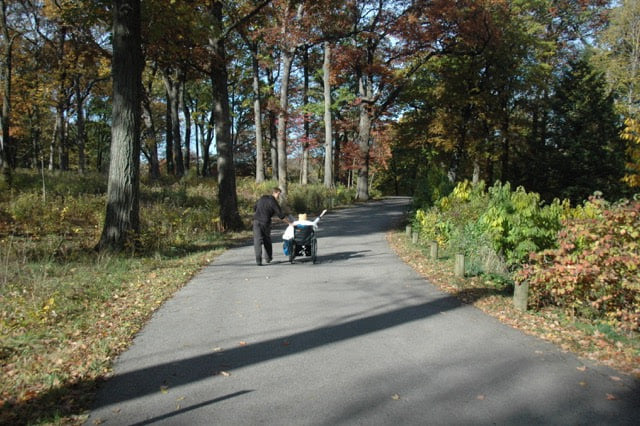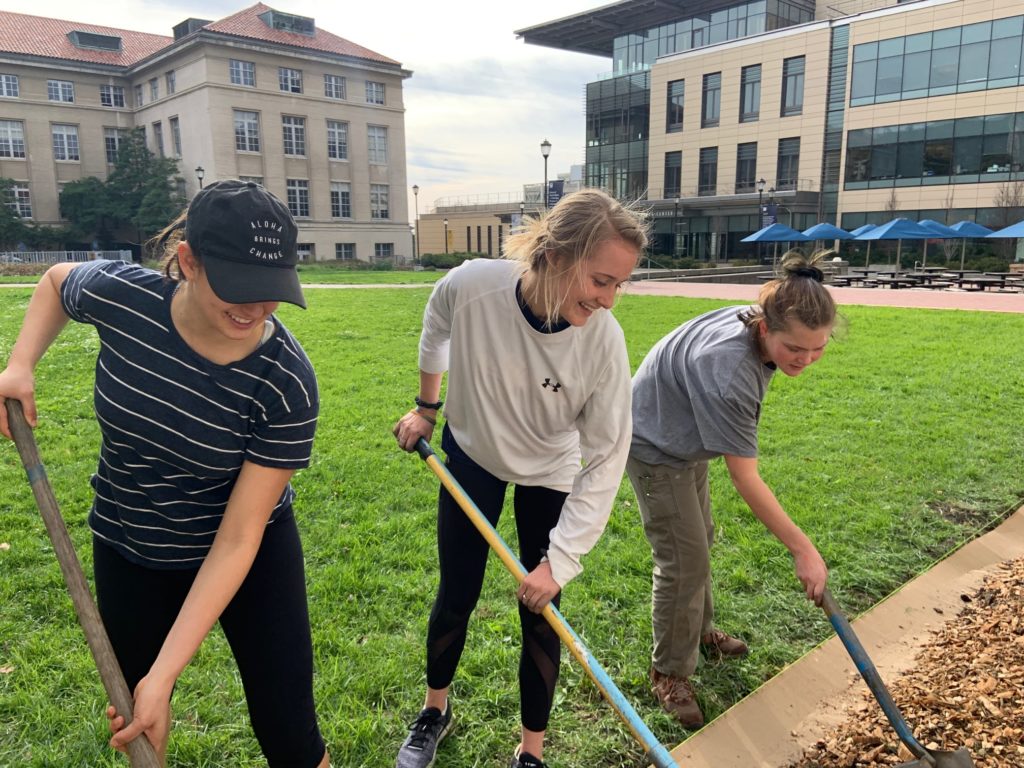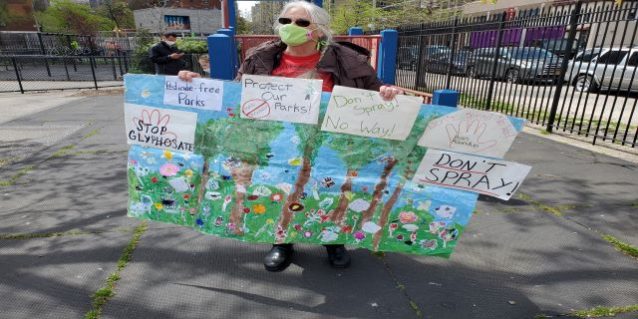

Look at the joy Mikey exudes in this photo at the simple pleasure of being outside with his dad, Al, in a public park close to our home! As schools let out and summertime play begins, it’s time to turn the attention of our childhood cancer prevention campaign to the spaces where children play.

Children deserve protection from toxic chemicals that have been linked to an increase in pediatric brain tumors and NHL that are often used to manage public parks. This week we are highlighting examples of effective, local policy that you can advocate to bring to your community.
The first is the state policy, Protect Children Where They Play Act from Beyond Pesticides. “This model legislation aims to protect children outside of school districts by restricting pesticide use on public spaces in communities where children play. It establishes a list of permitted outdoor pesticides that are the least toxic yet still effective products on the market.” Click on the link below to view this policy and bring it to the attention of your city and state legislators.
If I’ve learned anything in the last 5 years working alongside college students and university grounds crews with the Herbicide Free Campus campaign, it’s that change has to be asked for.
I encourage you to look at one of the many school districts nationwide that have created their own pest management plans to make up for the absence of strong state-level pesticide restrictions and to protect their children from hazardous use of chemicals.
So tell me, what’s stopping you from calling up the grounds crew at your child’s school or at their school district in order to ask for their school grounds and public parks to be managed without toxic chemicals?
That is exactly what Mackenzie and I did on our campus’s beach volleyball courts back in 2017 and now we are working with students and grounds crews across the nation to reduce the use of herbicides on university campuses.

If you need further inspiration, check out this state-wide herbicide ban that Hawaii implemented across ALL of their schools.
“We no longer burn coal in our buildings, we don’t light our offices with gas lamps, and we shouldn’t be using toxic and dangerous chemicals in our public spaces” -Council Speaker Corey Johnson.
Does anything more need to be said?
For as scary of an issue that children’s exposure to toxic chemicals in public parks is, there is hope. We can look to cities like New York and Connecticut who have banned the use of toxic pesticides in city parks and playgrounds.
When advocating for the reduction of herbicide use in your local public park, you do NOT have to reinvent the wheel. Bring this example of New York and countless other cities/ municipalities to the attention of your local parks department to show that this can be done. #childhoodcancerprevention #mighty4mikey
https://beyondpesticides.org/…/new-york-city-council…/

This work can be done… It simply takes someone to begin the conversation. #PreventChildhoodCancer #mighty4mikey

